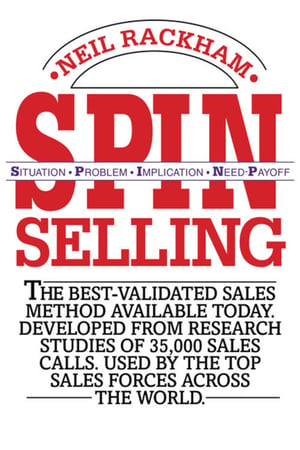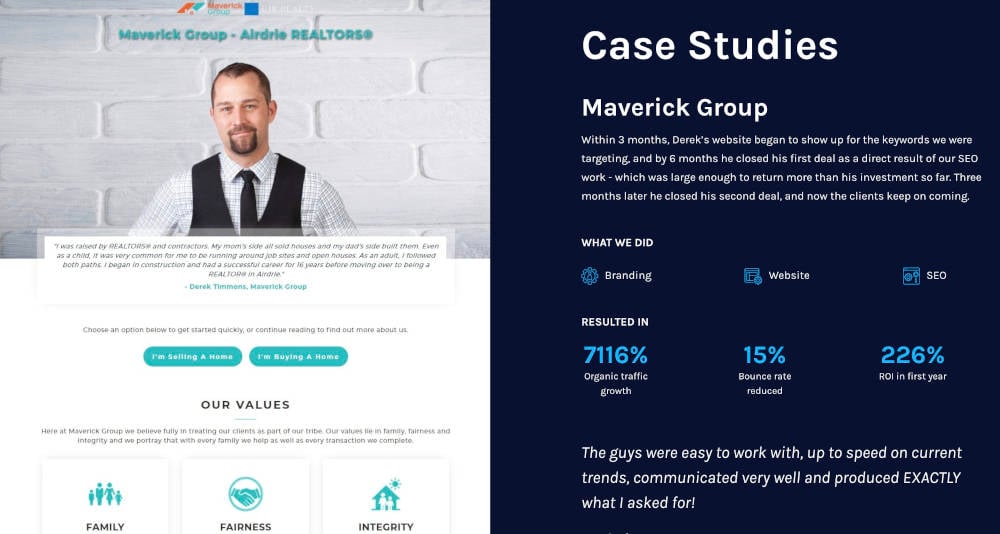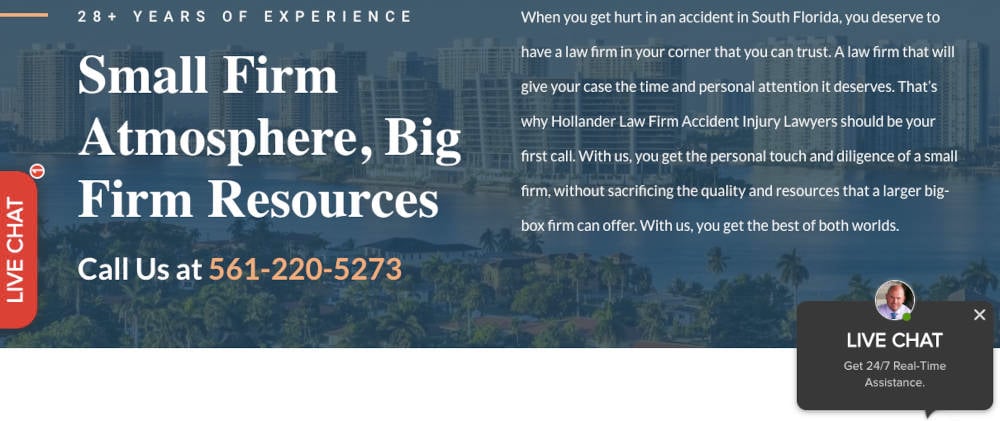Sales is what makes your company thrive. Without it, you can’t grow. And in the business world, if you aren’t growing, you’re dying.
If you want to reproduce success in sales time and time again, you need the right approach at every point in the sales process – one that fits your team, clients, values, market, and goals.
That “approach” is known as your sales methodology.
In this article, we’ll examine the top eight sales methodologies to consider for your business and help you get started choosing what’s best for you.
What is a sales methodology?
Before we get to the list, you might be wondering, “What is a sales methodology, and why do I need it?”
It’s easy to confuse your sales methodology with your sales process, but they are not the same. The sales process is a series of actional steps that take someone from being a prospective buyer to a client. This process is unique to your business, though it will include traditional steps like writing a sales proposal and closing the deal.
Your methodology, on the other hand, is a broader philosophy or set of principles for how you go about selling. It gives your sales reps a framework or approach, not only for how they sell your products or services, but how they work with and relate to clients.
Because of this, you don’t have to choose just one methodology. Some businesses adopt a methodology for every stage of their process.
You are free to do this, too. The important thing is to do what makes the most sense for your team and, most importantly, your customers at any point in the sales process.
Should I choose a sales methodology?
There is a short, simple answer to this question: yes! You need to help your team navigate each stage of the sales process. The good news? You get to decide how best to do that.
Now, what are the benefits of choosing a sales methodology? Two benefits stand out:
It will improve your hiring and training.
You’ll know who to recruit and hire based on who has a history of success within a similar framework or the ability to learn a new approach. Your reps will also be empowered as they learn and grow. Why? Because they’ll know exactly what’s expected of them. This will help you customize their ongoing development.
It will develop a consistent sales culture.
Your culture is vital to your success. In a way, what methodology you select will set the tone for your culture. This is related to the first benefit because when you recruit, hire, and train the right people in your sales methodology, you’ll have consistency across the board.
It will help everyone in the company, not just your sales reps, understand how you do business with clients, not just what you sell or the steps you take to get people to buy.
Now that we know what a sales methodology is and the benefits of choosing one, let’s look at the top eight sales methodologies to consider for your business.
1. SPIN Selling

Neil Rackham made SPIN Selling Famous when he wrote the book on it in 1988.
SPIN Selling rose in popularity through Neil Rackham’s 1988 book of the same name. It’s an acronym for the four things a sales rep should focus on when they talk to prospective customers: situation, problem, implication, and need-payoff.
While Rackham systematized this method in his book, the concept isn’t that revolutionary. It’s how everyday problem-solving conversations often play out.
Asking appropriate, probing questions is the emphasis. This allows the customer, not the sales rep, to be in the driver’s seat. In this methodology, the rep serves as an expert guide, leading the customer on a journey to help them discover the solution themselves. SPIN requires a skilled communicator who understands the product/service well and is quick on their feet with quality responses. It’s helpful in environments with simple transactions and only one or a few decision-makers.
2. Challenger Selling
If SPIN puts the customer in control, the Challenger method is on the other side of the spectrum. You’ve probably heard of buyer personas, but have you heard of seller personas? The Challenger methodology comes from one of the five B2B sales personas (Relationship Builders, Hard Workers, Lone Wolves, and Reactive Problem Solvers are the other four).
Instead of leading the customer on a discovery journey, the Challenger method builds consensus on teams with many stakeholders. The primary strategy of the Challenger sell is to teach prospective clients about the product or service, show the pitfalls within the client’s company (or industry), and persuade them to see the value in what the rep has to offer.
For example, GoTopShelf, an SEO agency, uses this methodology. If you visit their website, they break down what’s stopping you from ranking on search engines and how they can help by showcasing case studies from companies they have worked with in the past.

3. Solution Selling
In the solution selling approach, your team focuses on general problem-solving for the client, with or without a particular focus on a product or service. The goal is to solve (hence “Solution”) their biggest pain point. This typically leads to a specific product or service that can bring the change they desire, though it also may mean a customized, hybrid solution that varies from client to client.
This is a powerful methodology for any industry. A web development company might create certain bundles for each client based on what their site requires in terms of storage, data collection, media, and so on. Or consider the legal industry (yes, attorneys sell, too!). On their homepage, Hollander law firm shows how they holistically care for their client’s needs to help solve their particular legal issue.
 Hollander’s focus on giving the client’s “case the time and personal attention it deserves” highlights their solution-based sales approach.
Hollander’s focus on giving the client’s “case the time and personal attention it deserves” highlights their solution-based sales approach.
4. SNAP Selling
SNAP Selling is sales for a busy and frazzled world. Popularized by Jill Konrath in 2012, SNAP focuses on making quick sales to win more business.
Here’s how SNAP works:
- Keep it Simple. Most buyers are overwhelmed, so sales reps need to make things easy for buyers to change habits and buy what you’re selling.
- Be i(N)valuable. With so much information available, buyers need personable, unique experts who stand out from the crowd.
- Always Align. You can’t sell something if people don’t want to work with you. Reps must align with their customers’ core values and goals.
- Raise Priorities. Don’t try to sell something the buyer doesn’t want. Focus on the prospect’s desires to win deals.
5. The Sandler System Selling
Similar to the SPIN method, the Sandler system prioritizes building mutual trust between both sides but goes one step further. Sandler selling gives the rep and client equal investment. The rep serves as a guide, asking questions to identify obstacles during the qualification process before a deal is made.
In this methodology, the seller is trained not to sell. That seems counterintuitive, but the goal is to change the buyer’s behavior so they believe they are pursuing the deal themselves. It’s the opposite of what you think of when “used car salesman” comes to mind.
6. Conceptual Selling
Conceptual selling is similar to the solution sale we mentioned above in that you’re trying to help the client identify how to solve their biggest problem. The main difference is that in this sales methodology, the sales rep sells the concept of a solution, not the product or service itself. It emphasizes finding a win/win solution for every stage of the selling process.
There are three aspects to this method: getting information, giving information, and getting commitment. At each stage, the salesperson asks questions to uncover the prospect’s concept of their product or service, which helps them understand the prospect’s decision-making process.
Along the way, the rep shares relevant information about the product/service to gain progressive commitment.
7. MEDDIC Selling
MEDDIC is a sales qualification framework for complex and enterprise sales. It’s less of a framework and more like a checklist for what sales reps need to know. MEDDIC is an acronym with accompanying questions for salespeople to ask:
- Metrics: What’s the economic impact of the situation?
- Economic buyer: Who controls the budget?
- Decision criteria: What criteria are used to choose a vendor?
- Decision process: How will the organization pick a vendor? What are the stages of the decision-making process?
- Identify pain: What are the triggers and financial consequences of the problem?
- Champion: Who is selling for you?
8. Target-Account Selling
Target-account selling is a popular methodology ideal for breaking down large deals or accounts into manageable pieces. This allows sales reps to build stronger bonds with prospects to know their needs inside and out to deliver higher value until they convert.
Because of the narrow focus on relationships for sales reps, this particular methodology requires excellent alignment and communication across marketing, sales, and customer service teams. It also will benefit from the right sales automation tools to help your team identify which prospects will be most receptive to your solution.
How should you be selling?
Whatever sales methodology you choose will be foundational for your team, so be sure it is a natural fit for your company, industry, values, and goals. Otherwise, it will likely hurt your employees, customers, and bottom line.
To choose a methodology, start with your team. Which methodology aligns with how you connect with customers and the sales process? Then consider your team: what has succeeded for the best sales reps? Is that replicable for the whole sales department?
Then consider your team’s gaps. Where has your team fallen short? Which methodology would give them a mental map of how to navigate specific stages of the sales process?
For example, if your reps struggle to identify a prospect’s pain points and can’t articulate how your product/service is the solution they need, go with a methodology that helps them identify problems early in the process.
Or, if you have a team that is confident and zealous to close a deal but struggles to connect with clients, focus on a methodology that helps them recognize the situation and desires of your prospects before trying to get them to sign on the dotted line.
Whatever you choose, know that methodology inside and out and train your team to embrace it and own it.
Wrapping it up
We’ve covered just eight sales methodologies out of the dozens and dozens in the sales world. A sales methodology is a big-picture approach to how you relate to clients throughout the sales process. The best methodology will help bring cohesion to your team and stabilize your company’s culture. Ultimately, that leads to a better bottom line.
Selling is hard. It will be harder than it needs to be if you go about it without a guiding framework. But if you choose the right sales methodology for your business, you’ll avoid falling into a sales rut and help your business flourish for the long haul.




